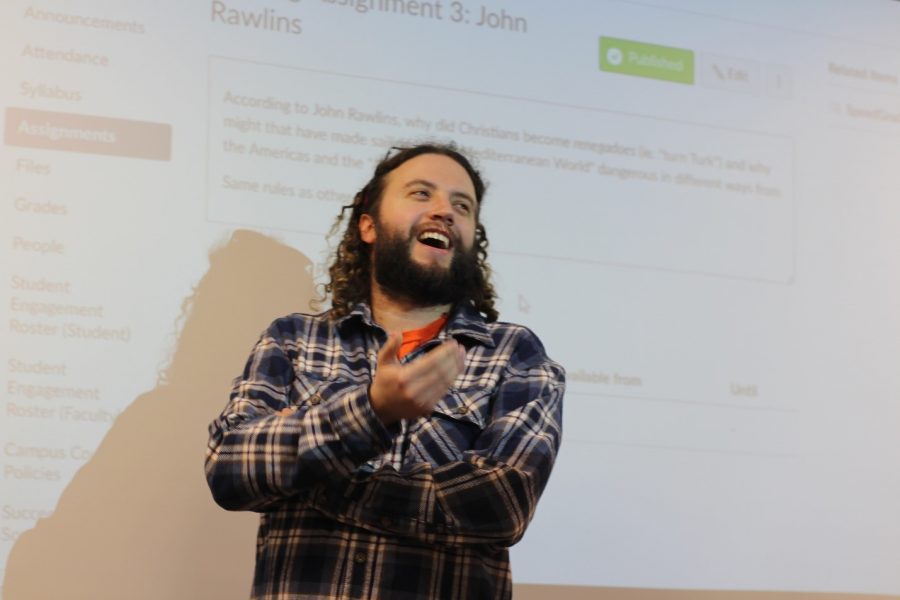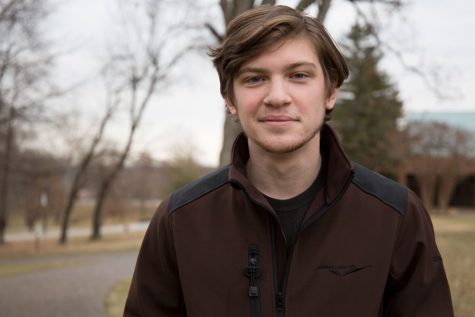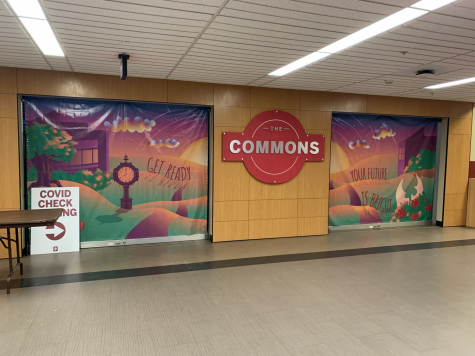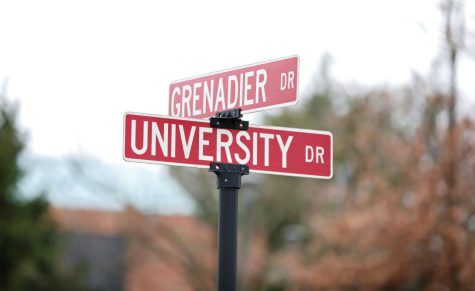Temporary teachers strive for tenure and experience
Visiting and adjunct professors provide insight into what it’s like to be temporary
Robert “Bobby” Wells is a visiting professor and future faculty teaching fellow at IU Southeast, teaching topics in history from Napoleon to Vikings and pirates. Photo by John Renfrow.
March 20, 2019
Robert “Bobby” Wells begins his pirate class like any other teacher with orthodox greetings, attendance, slideshows and questions. From there, the class voyages everywhere from Viking-controlled waters of Europe to the tropical island of Tortuga in Haiti, searching for the fountain of youth and chasing the city of gold. You know, standard stuff.
Students control their destiny in the class. They control their grades, they turn in their work and earn their points at their discretion, as is the case for college students across the country. However, visiting and adjunct professors lack that luxury, and there are often questions of uncertainty behind their future, despite the work they put in.
Visiting, but only briefly?
Wells’ title is future faculty teaching fellow in the school of social sciences at IU Southeast, and is part of a year-long program from IU Bloomington that gives PhD students experience in teaching before their completion. It pays more than a typical adjunct position, as well as includes benefits like medical insurance, etc.
“As a future faculty teaching fellow, you’re not eligible to be re-upped for another year. I’m sure if I do a good enough job here they would potentially keep me on as an adjunct professor, but it wouldn’t come with those added benefits and pay that would potentially make it worthwhile. So that’s not the goal,” Wells said.
This is a stepping-stone position for Wells, as he puts it. He said he would love to stay at IU Southeast in a tenured track position, but he said those positions are increasingly harder to get. Wells said the teaching has been an adjustment, but he said the good experience is what he does it for.
“At the moment, the teaching, doing it roughly for the first time between these past two semesters, is a lot and I’m not getting as much written as I should [for his dissertation]. But on the other hand I feel like I’m getting a lot of good experience in the meantime,’ Wells said. “Being just kind of thrown into the fire of having to teach my own classes makes you feels more like a proper faculty member all at once. ‘Hey I have a nice office’, versus, ‘I feel like a temp,’”
Wells said he’s grown to enjoy the smaller size of the institution here. Having being led to believe larger institutions are more valuable, he said he now sees that hasn’t been the case.
“It’s nice being part of, one, a smaller faculty, and two, a faculty that’s more open about its enthusiasm for teaching than the two large public research universities I came from sometimes. Professors at these bigger places talk way less about teaching, about how important it is to them, all of that stuff,” Wells said.
After his year is up, Wells said his goal is to become a tenured professor in the future. Wells is from Michigan, and plans to travel to France in the summer for research and experience, but for now he’ll be teaching about pirates and history on Monday’s and Wednesday’s at IU Southeast.
Adjunct- what’s that mean?
Unlike the brevity of Wells’ time at IU Southeast, Danielle Biton is an adjunct lecturer of seven years in French here on campus. Although teaching all levels of French classes on campus, and having an outspoken love of teaching, Biton still worries about where or not she will teach classes at IU Southeast next semester.
Biton said there are a few factors to consider in regards to adjunct professors:
- Adjunct professors have renewable part-time contracts on a semester basis
- They cannot teach more than nine credit hours a semester
- They receive no benefits for health insurance or retirement
- They have no rights to participate in university decision-making
“I do not at all enjoy being a part-time teacher. I never know if I will have a class or not the following semester. If a class gets cancelled, I do not get paid and as I only know it at the last minute, I cannot have another class somewhere else to teach,” Biton said. “I do not have private space to leave my teaching materials or meet with students.”
Having three kids, the lack of stability is what Biton said is a source of uneasiness. She also said she feels disposable despite having given seven years of her time here.
“We part-time teachers sometimes feel we are not being recognized as useful teachers as no efforts are made by the university to keep us and transform our contracts to full-time positions. Anybody could just replace you and you will not be missed,” Biton said.
Although, despite her reservations, she said her love for teaching and the effect she has on students is what keeps her going and makes her time worthwhile.
“I absolutely love teaching. It is very rewarding to see my students grow and learn. I feel like I am helping my students to find happiness in learning and I love sharing my knowledge of French culture,” said Biton. “When a student comes at the end of a semester to tell me ‘thank you’ because they really enjoyed the class and learned a lot, I feel like I did not lose my time and I helped them move in life a step closer to reaching their goal.”













